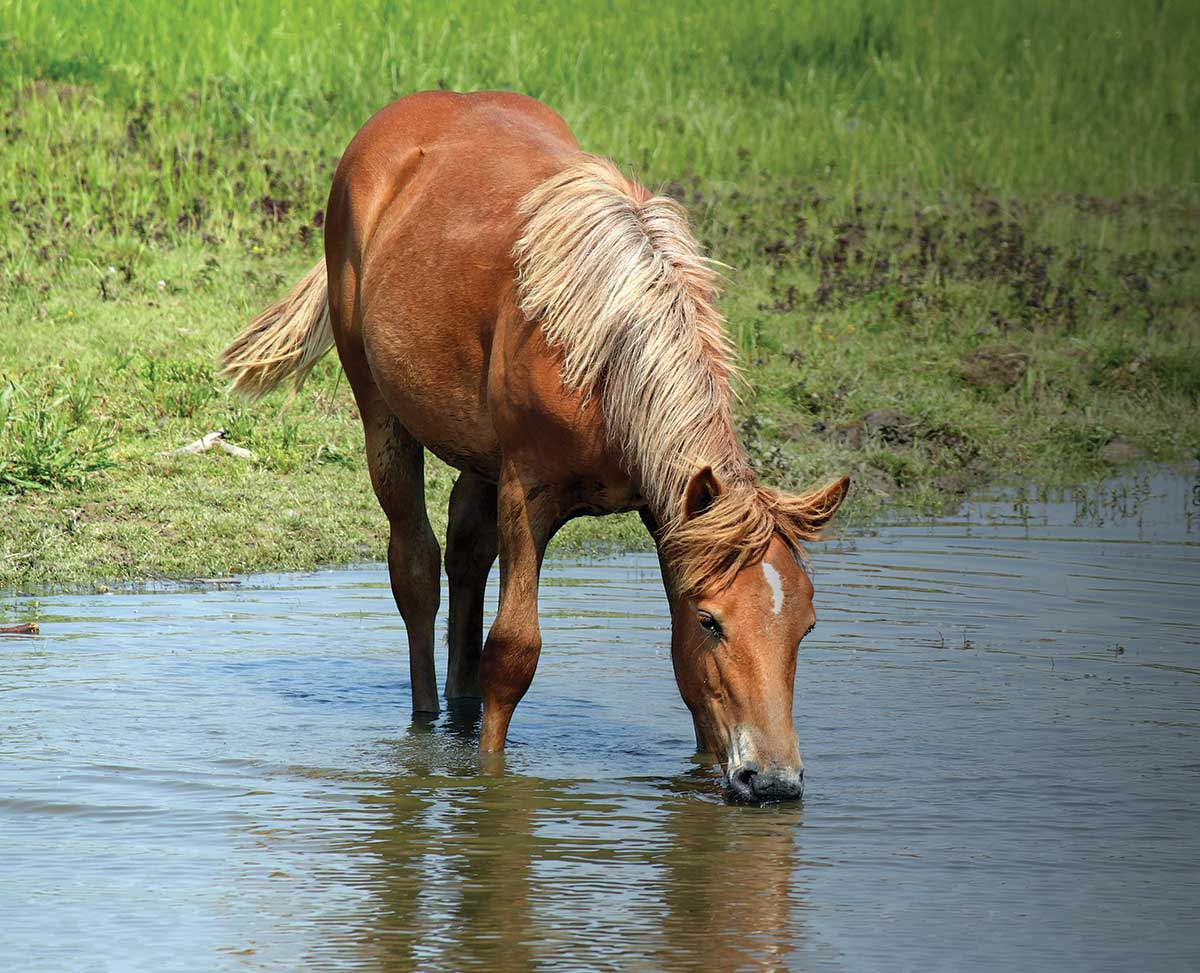
If you work your horse in hot weather, he loses a good deal of body fluid plus electrolytes through his sweat. Drinking water replenishes his fluids, but what about those other components of sweat?
What Are Electrolytes?
Electrolytes are salts and minerals that conduct electrical impulses in your horse’s body. They control fluid balance and are essential for muscle contraction, energy generation, and almost every major biochemical reaction.
The main electrolytes are sodium and chloride (the components of table salt—sodium chloride). Others include calcium, magnesium, phosphorus, and potassium.
Insufficient electrolytes in the body can result in dehydration, overheating, fatigue, weakness, muscle cramping, heart trouble, and more.
Electrolyte Supplements
Commercial pastes or gels are delivered into the mouth via syringe. Convenient to carry, they can be used in sweaty situations without the need for water or grain. (Avoid giving them frequently on an empty stomach, though occasionally doing so is fine.) Powders are fed as a top dressing on grain. Dissolvable products are added to your horse’s drinking water (provide untreated water, as well). Avoid giving electrolytes if your horse is showing any signs of illness. For best advice on providing electrolytes to your particular horse, consult your veterinarian.
When to Supplement?
If your horse gets plenty of high-quality forage in his diet, he’s already getting all the electrolytes he needs on a normal basis—with the exception of sodium. That’s why you need to provide him with supplemental salt at all times (see below).
But you may also need to give him an electrolyte supplement any time he’s sweating a good deal more than usual—as when exercising in hot weather, and especially in hot, humid conditions. That’s when he’ll sweat out more electrolytes than he can replenish through feed.
If you’ll be hauling your horse in hot weather, he’ll be sweating a lot, so it’s also a good idea to start providing electrolytes five to seven days before the trip. Electrolyte supplements can initially draw fluids out of your horse’s bloodstream and into his intestinal tract, so providing the electrolytes in advance gives his system time to adjust.
Cautions & Tips
If you opt to provide an electrolyte supplement, always do so in addition to providing adequate salt (because electrolyte supplements alone don’t provide enough sodium). Also, if you elect to put the electrolytes in your horse’s water (one of several options), always provide an additional, untreated water source.
Finally, if your horse is subject to HYPP (hyperkalemic periodic paralysis), don’t feed electrolytes without your veterinarian’s OK, as they could exacerbate this condition’s potassium imbalance.
Worth His Salt
Sodium is the main electrolyte found in the blood and other body fluids. Even at rest, your horse needs at least 10 grams of sodium per day, the amount found in two level tablespoons of salt. Add work and heat/humidity, and that can jump to the equivalent of four level tablespoons or more. To ensure your horse gets adequate salt, provide him with a plain, white salt block (he should consume a five-pound block within two months). If you think he’s not getting enough, supplement with free-choice granulated salt.

